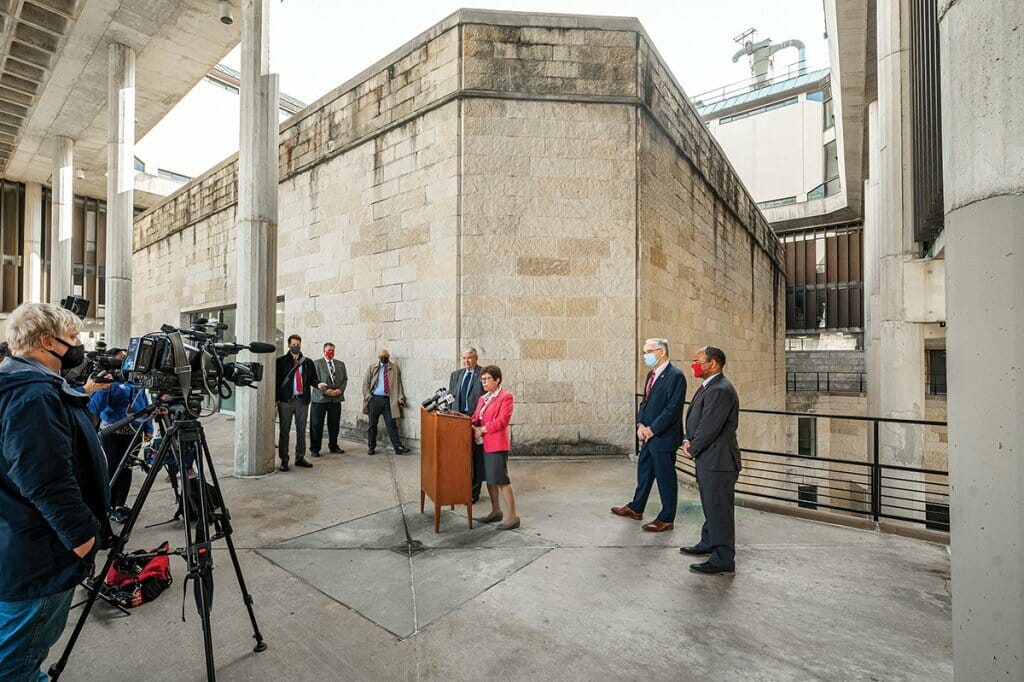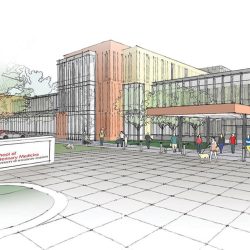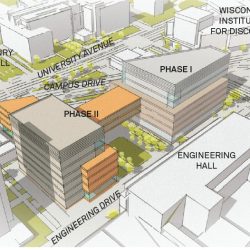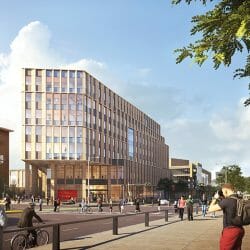
A tour of the Humanities Building underscored the need for a new academic facility for the College of Letters & Science. Bryce Richter
In July, Wisconsin governor Tony Evers ’73, MS’76, PhD’86 signed the 2021–23 state budget with dozens of line-item vetoes, capping a months-long process that saw the legislature scrap his original proposal and craft its own. UW–Madison emerged from the process with several important wins, including new funds for a critical campus building.
As part of the budget bill drafted by the Republican-led legislature and signed by the Democratic governor, the UW System Board of Regents regained its authority to set tuition rates for in-state undergrads. That ends an eight-year mandated tuition freeze at UW–Madison.
The budget also provides 2 percent pay increases for university and state workers in each of the next two years, plus $2 million for the UW’s Division of Extension to hire additional agricultural specialists.
Last spring, university leaders invited state politicians to tour a campus artifact with structural challenges: the Humanities Building (pictured above). The effort underscored the need for a new academic facility for the College of Letters & Science. The final budget obliged, covering roughly 70 percent of the projected $88 million cost. The new building, planned for the corner of West Johnson and North Park Streets, will feature 19 modern classrooms and consolidate departments and programs from seven campus locations.
“This new academic building will modernize the student learning experience and build research connections across campus, better serving the needs of our growing undergraduate population,” said Eric Wilcots, the college’s dean.
High on the list for UW–Madison was funding for a new engineering building that would enable the university to increase enrollment in the in-demand field by nearly a quarter. While funding for the building was not included in the final budget passed by the legislature, the budget does fund a major utility project on Engineering Drive, which signals future support for constructing the facility.
“We begin the new fiscal year with a solid budget that invests in our valued employees and provides funding for important new building projects,” said Chancellor Rebecca Blank.
Published in the Winter 2021 issue



Comments
No comments posted yet.